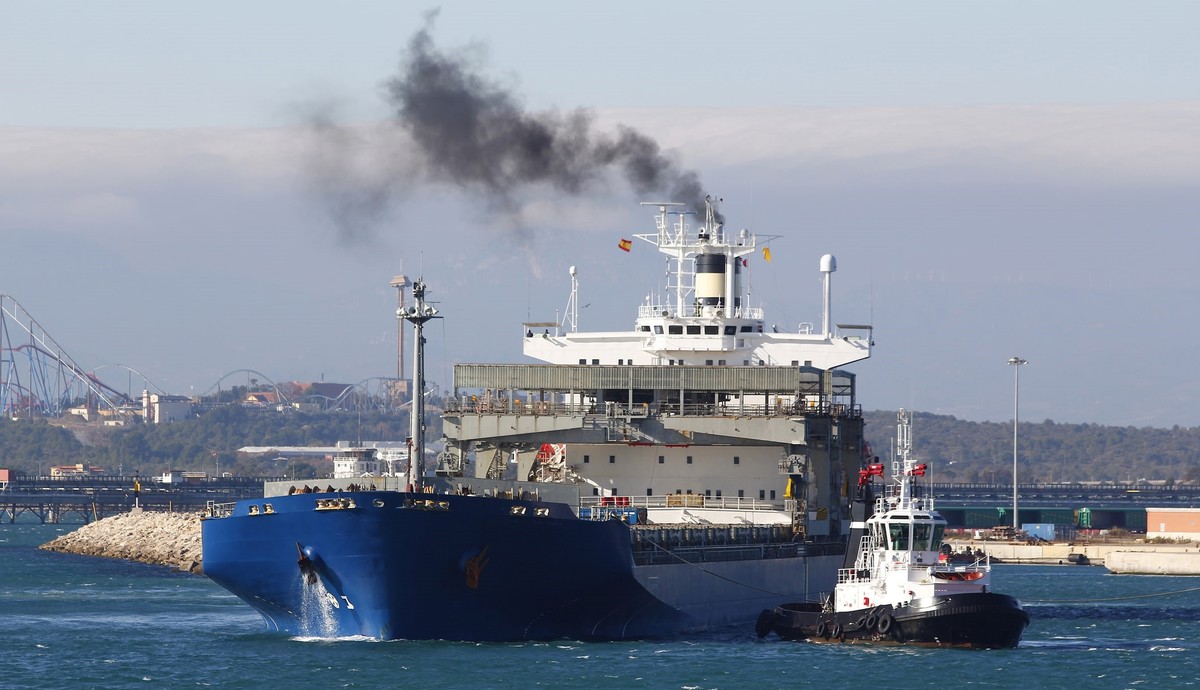MEPC 82: Ships must pay an annual fee for onboard GHG emissions – ICS
A GHG pricing mechanism based on a 'flat-rate' emission fee combined with a feebate mechanism is expected to accelerate the adoption of green bunker fuels, the ICS suggested in a proposal to the IMO.
 PHOTO: Getty Images
PHOTO: Getty Images
- Ships must make a flat-rate contribution for using fossil fuels
- Reward rate of $100/mtCO2e prevented can raise up to $12.5 billion/year
- 20% of the contribution should be allocated to zero-emission shipping fund
Ships must contribute an annual "flat-rate" contribution called a greenhouse gas (GHG) fee for every mt of carbon dioxide-equivalent (mtCO2e) emitted by them for a period of at least five years from 2025, according to the International Chamber of Shipping's updated proposal to the shipping regulator.
GHG fees for most fuels should be based on a tank-to-wake basis “to accommodate objections to ships being charged for emissions that are the responsibility of other sectors," it added.
“The co-sponsors take no view on what the quantum of the GHG fee should be but note that it needs to be set at a level which enables the goals of the 2023 IMO GHG Strategy to be achieved whilst also avoiding disproportionately negative impacts,” the proposal noted.
A portion of the funds collected from the GHG fees can be allocated towards the IMO’s zero-emission shipping fund (ZESF), it recommended. This could be at least 20% or higher, depending on the flat rate.
The GHG fee contribution should be coupled with a feebate mechanism that rewards ships for reducing emissions on a well-to-wake basis by using zero- and near-zero fuels.
The reward system should provide incentives for the uptake of biofuel blends, LNG, green and blue ammonia, green and blue hydrogen, bio- and e-methanol and bio- and e-methane. It should also reward the use of carbon capture and storage on ships.
The reward rate should be calculated on a well-to-wake basis, it added.
The submission calculated that a GHG fee of $18.75/mtCO2e or $60/mt of fossil fuel consumed could add at least $2.5 billion/year to the IMO’s shipping fund. In addition, a reward rate set at $100/mtCO2e could raise around $12.5 billion/year.
“This is to reduce the cost gap with conventional fuels and incentivize the accelerated production and uptake of zero/near-zero GHG fuels.” the proposal explained.
The proposal submitted by ICS along with the Bahamas and Liberia, will be discussed at the IMO’s 82nd Marine Environment Protection Committee meeting (MEPC 82) in September, ICS claimed.
By Konica Bhatt
Please get in touch with comments or additional info to news@engine.online





